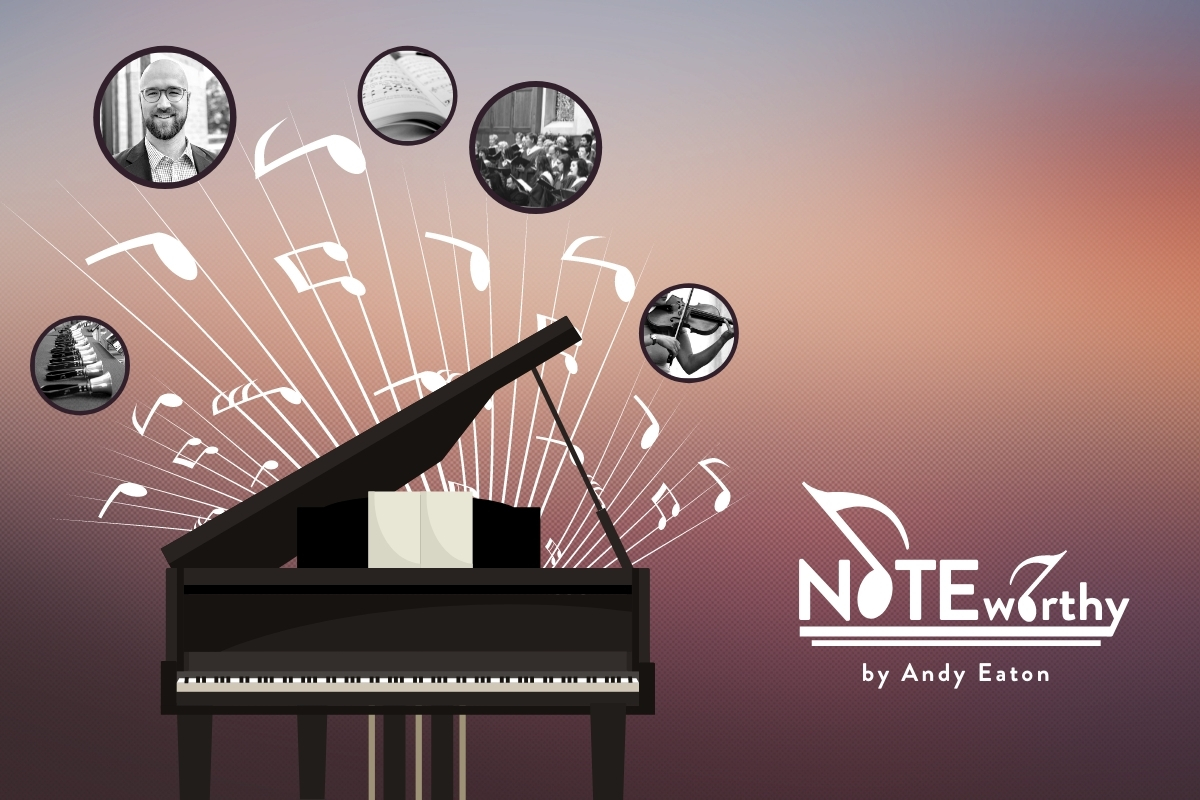Battle Hymn of the Republic
William Steffe, arr. Peter J. Wilhousky
This tune, and particularly this arrangement of this song, have a very special place in my heart. This was the opening song of the Texas All-State Choir/Band/Orchestra concert my Senior year. I remember finishing this song and thinking, “What could ever top this mountaintop musical experience?”
It is a powerful song, and one that taps into that confusing and very American duet of nationalism and Christendom.
Global happenings tend to make us reassess that duet. When we see the fear, the tragedy, and confusion of a government overthrown like we have seen recently in Afghanistan, it is a very natural response for us to tighten the bonds between nationalism and Christendom.
Our nationalism in the states tends to center around the idea of freedom, and when we see freedoms collapse in another part of the world, it is scary. It makes you grateful to be where you are.
But I do not write these columns for the glory of America. I write them for the glory of God.
So, a thought about freedom, from theologian, Dietrich Bonhoeffer:
“Freedom is not a quality which can be revealed–it is not a possession, a presence, an object, nor is it a form of existence–but a relationship and nothing else. In truth, freedom is a relationship between two persons. Being free means “being free for the other,” because the other has bound me to him. Only in relationship with the other am I free.”
The way I interpret this is: True freedom is choosing to whom you bind yourself. Too often, our American ideology equates independence with freedom. “I am free, so I can do whatever I want.” That is most certainly not true, and even more certainly not a Christian ideal!
From a friend of mine who recently graduated from Truett Theological Seminary, “Bonhoeffer argues that this is how human beings were created: free for relationship with God and for relationship with one another, or against relationship with God and against relationship with the other. For Bonhoeffer, who is clearly not naive to the politics of his time, human freedom is never a neutral relationship.
In this perspective, any time we choose the isolation of independence, we choose a relationship against our neighbor. To not engage with our neighbor in a way that loves them, strengthens them, moves them, is not simply apathy. It is choosing to be against that neighbor. And if I remember right about the Jesus’s thoughts on neighbors, I think we are supposed to love them (Matt 19:19)
One last point: in the Bible, we are called to be sheep! Perhaps the least independent animal on the planet. Frankly, a dumb animal. The image was clearly not chosen to flatter us. The sheep is a wholly dependent animal – dependent on its flock for safety and its shepherd for guidance. Without these two things, the sheep would die. So, too, with us. The impulse that drives us to love our neighbor and God is not one that needs to be motivated by the negatives of inaction, but by the fulfillment that follows the effort.
With that in mind, how big can you make your flock? Surely your family, this church, are in the fold. But who else? Does it include a few folks that the world might call a “black sheep?” Jesus’s flock did, and you have the freedom to gather a few together in yours, as well.
Jesus saw the huge crowd as he stepped from the boat, and he had compassion on them because they were like sheep without a shepherd. So he began teaching them many things.
Mark 6:34
Acknowledge that the LORD is God! He made us, and we are his. We are his people, the sheep of his pasture.
Psalm 100:3
And the Pharisees and scribes were complaining, “This man welcomes sinners and eats with them!” So He told them this parable “What man among you, who has 100 sheep and loses one of them, does not leave the 99 in the open field and go after the lost one until he finds it? When he has found it, he joyfully puts it on his shoulders, and coming home, he calls his friends and neighbors together, saying to them, ‘Rejoice with me, because I have found my lost sheep! I tell you, in the same way, there will be more joy in heaven over one sinner who repents than over 99 righteous people who don’t need repentance.
Luke 15:2-7
Andy Eaton
Director of Music
First Presbyterian Church

